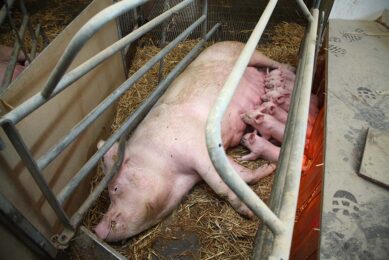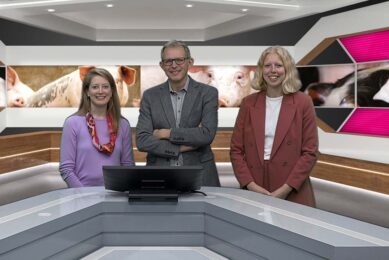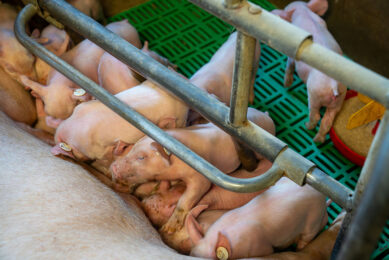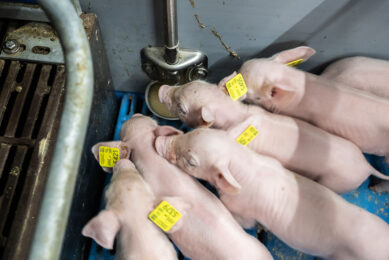On-demand: Webinar on protecting piglets

“Protecting piglets” was the topic of a Pig Progress webinar that was aired live at www.pigprogress.net on Wednesday, March 22. The webinar is now available to watch on demand.
To review the webinar, click here
The webinar was held in cooperation with DSM Animal Nutrition and Health. Its full title was “Protect piglets: Strategies to optimise gut function.”
Optimising the gastro-intestinal functionality of piglets
During the webinar, 3 speakers covered the topic of optimising the gastro-intestinal functionality of piglets. They viewed the topic in relation to sow health and its effect on progeny, the role of sanitary conditions and protein nutrition in piglet gut health and how precision approaches to nutrition and health can support better production outcomes.
An underestimated issue for sows and progeny
Veterinarian Chris Schouten is a swine consultant at adVee veterinary practice in the Netherlands. His clinic is one of the major veterinary clinics in the Netherlands, with 13 out of 45 veterinarians specalising in swine health.
He looked into what he calls an “underestimated” issue for sows and progeny: urinary tract infections in lactating sows. He summed up a range of treatments. When dealing with sick sows he suggested to fill the trough with water; help her stand up; apply medication against fever and pain; and use antibiotics.
In addition, he said general measures include checking water supply, application of hygiene at birth and behind the sows, the use of artificial insemination, lowering the urine pH and last but not least, lowering the magnesium oxide and sodium bicarbonate levels in the feed.
Effect of sanitary conditions
The next speaker was Walter Gerrits, PhD, professor in animal nutrition at Wageningen University & Research, the Netherlands. The topic of his presentation was the effect of sanitary conditions on protein digestibility in weaned piglets.
He talked about an experimental trial in which researchers tested 2 different diets (with high and low levels of dietary indigestible protein) in 2 types of sanitary conditions (high and low sanitary levels). He discussed a range of take-home messages as a result of the trial. These included the conclusion that fibre digestion is reduced under low sanitary conditions. In addition protein gain (N balance) was reduced under low sanitary conditions.
Precision approach to piglet nutrition
The last speaker was Estefanía Pérez Calvo, PhD. She is EMEA principal scientist at DSM. She holds a veterinary degree and a PhD in animal production and feed science from the University of Zaragoza in Spain.
Dr Pérez Calvo focused on 2 different topics: the importance of maternal health status on progeny performance, as well as precision approaches to piglet feed. Dr Pérez Calvo concluded that metabolic disorders of sows around parturition affect health and growth of the progeny. Monitoring e.g. health, behaviour and environmental factors allow preventive actions. She also said that precision nutrition requires specific tools to make the most use of it.
 Beheer
Beheer








 WP Admin
WP Admin  Bewerk bericht
Bewerk bericht